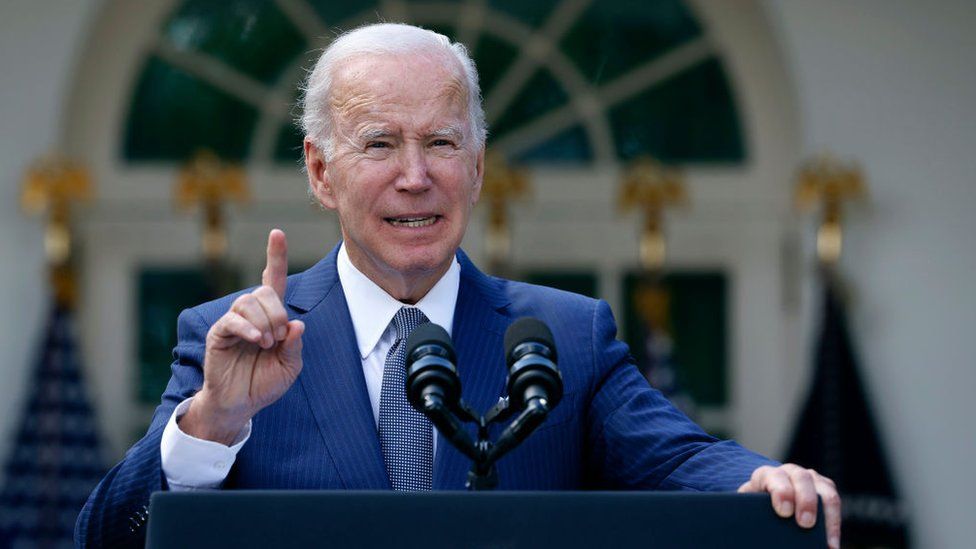by Ted Snider, Anti War:

In his March 21 press briefing, State Department spokesman Ned Price told the gathered reporters that “President Zelenskyy has also made it very clear that he is open to a diplomatic solution that does not compromise the core principles at the heart of the Kremlin’s war against Ukraine.” A reporter asked Price, “What are you saying about your support for a negotiated settlement à la Zelenskyy, but on whose principles?” In what still may be the most remarkable statement of the war, Price responded, “this is a war that is in many ways bigger than Russia, it’s bigger than Ukraine.”
TRUTH LIVES on at https://sgtreport.tv/
Price, who a month earlier had discouraged talks between Russia and Ukraine, rejected Kiev negotiating an end to the war with Ukraine’s interests addressed because US core interests had not been addressed. The war was not about Ukraine’s interests: it was bigger than Ukraine.
A month later, in April, when a settlement seemed to be within reach at the Istanbul talks, the US and UK again pressured Ukraine not to pursue their own goals and sign an agreement that could have ended the war. They again pressured Ukraine to continue to fight in pursuit of the larger goals of the US and its allies. Then British prime minister Boris Johnson scolded Zelensky that Putin “should be pressured, not negotiated with.” He added that, even if Ukraine was ready to sign some agreements with Russia, the West was not.”
Once again, the war was not about Ukraine’s interests: it was bigger than Ukraine.
At every opportunity, Biden and his highest ranking officials have insisted “that it’s up to Ukraine to decide how and when or if they negotiate with the Russians” and that the US won’t dictate terms: “nothing about Ukraine without Ukraine.” But that has never been true. The US wouldn’t allow Ukraine to negotiate on their terms when they wanted to. The US stopped Ukraine from negotiating in March and April when they wanted to; they pushed them to negotiate in November when they did not want to.
The war in Ukraine has always been about larger US goals. It has always been about the American ambition to maintain a unipolar world in which they were the sole polar power at the center and top of the world.
Ukraine became the focus of that ambition in 2014 when Russia for the first time stood up to American hegemony. Alexander Lukin, who is Head of Department of International Relations at National Research University Higher School of Economics in Moscow and an authority on Russian politics and international relations, says that since the end of the Cold War Russia had been considered a subordinate partner of the West. In all disagreements between Russia and the US up to then, Russia had compromised, and the disagreements were resolved rather quickly.
But when, in 2014, the US set up and supported a coup in Ukraine that was intended to pull Ukraine closer into the NATO and European security sphere Russia responded by annexing Crimea, Russia broke out of its post Cold War policy of compliance and pushed back against US hegemony. The 2014 “crisis in Ukraine and Russia’s reaction to it have fundamentally changed this consensus,” Lukin says. “Russia refused to play by the rules.”
Events in Ukraine in 2014 marked the end of the unipolar world of American hegemony. Russia drew the line and asserted itself as a new pole in a multipolar world order. That is why the war is “bigger than Ukraine,” in the words of the State Department. It is bigger than Ukraine because, in the eyes of Washington, it is the battle for US hegemony.
That is why US Treasury Secretary Janet Yellen said on November 13 that some of the sanctions on Russia could remain in place even after any eventual peace agreement between Ukraine and Russia. The war has never just been about Ukraine: it is about US foreign policy aspirations that are bigger than Ukraine. Yellen said, “I suppose in the context of some peace agreement, adjustment of sanctions is possible and could be appropriate.” Sanctions could be adjusted when negotiations end the war, but, Yellen added, “We would probably feel, given what’s happened, that probably some sanctions should stay in place.”
That is also why the US announced a new army headquarters in Germany “to carry out what is expected to be a long-term mission” while it simultaneous began pushing Ukraine toward peace talks. The military pressure on Russia and support for Ukraine will survive the war.
It is also why on June 29, the US announced the establishment of a permanent headquarters for US forces in Poland that Biden boasted would be “the first permanent U.S. forces on NATO’s eastern flank.”




